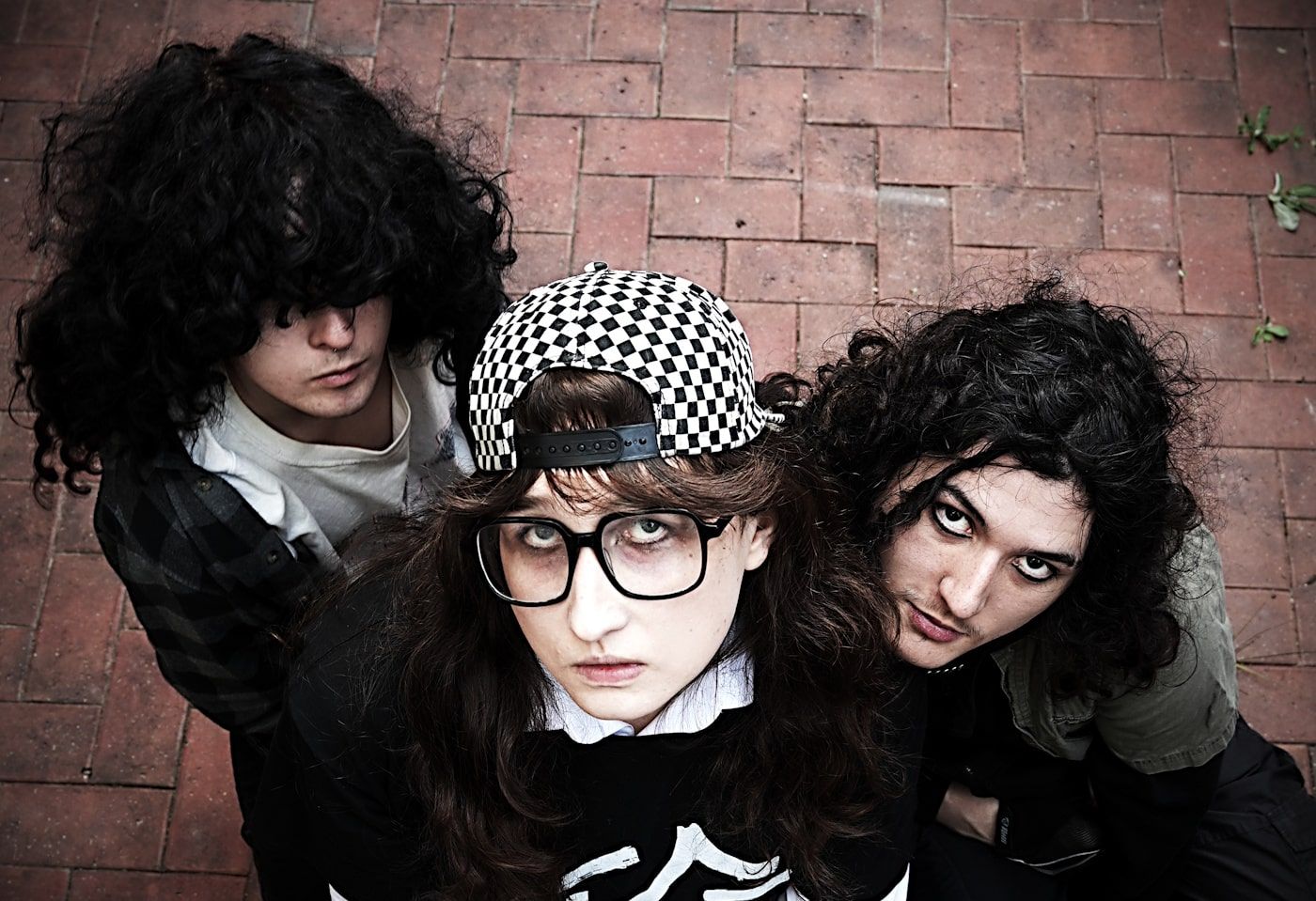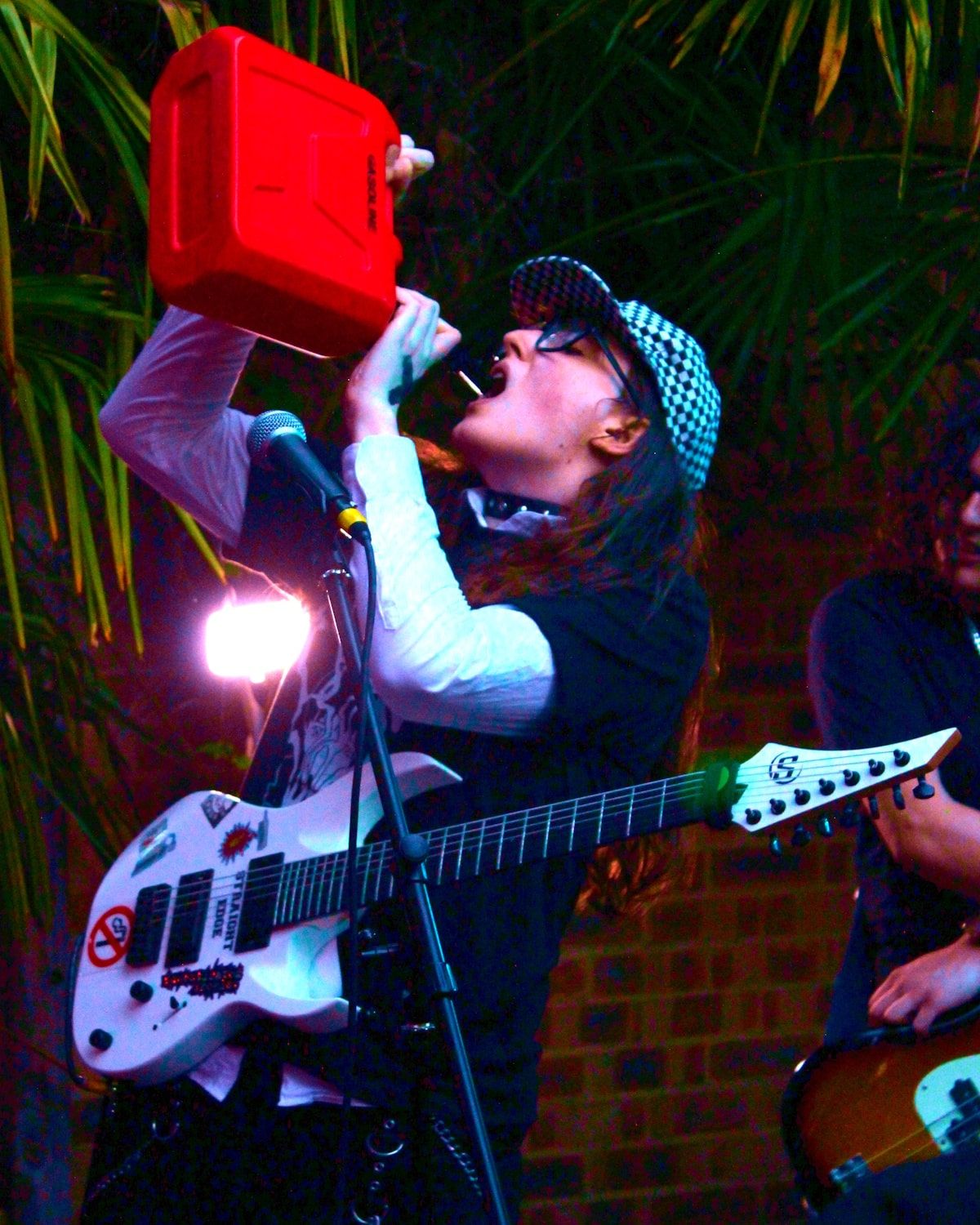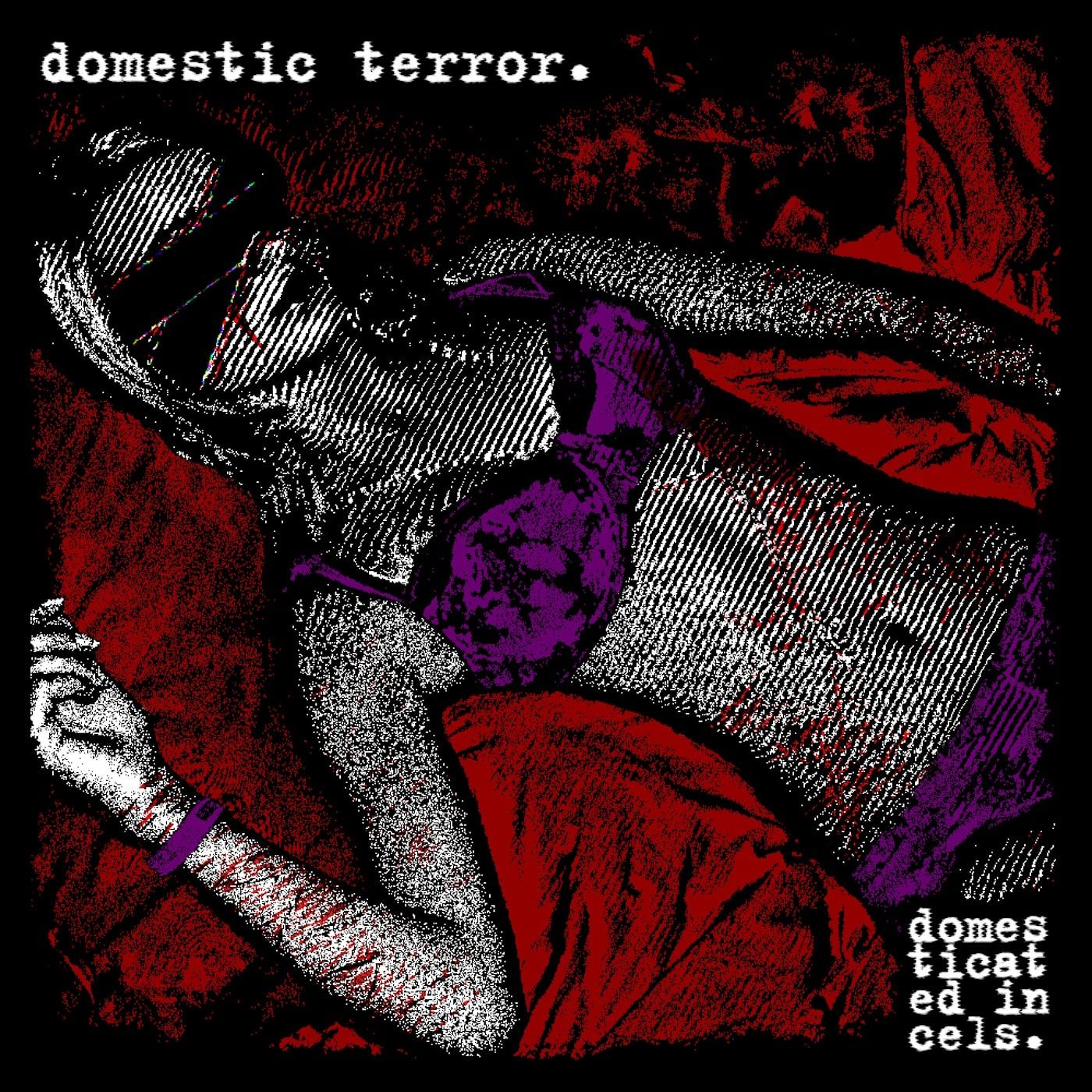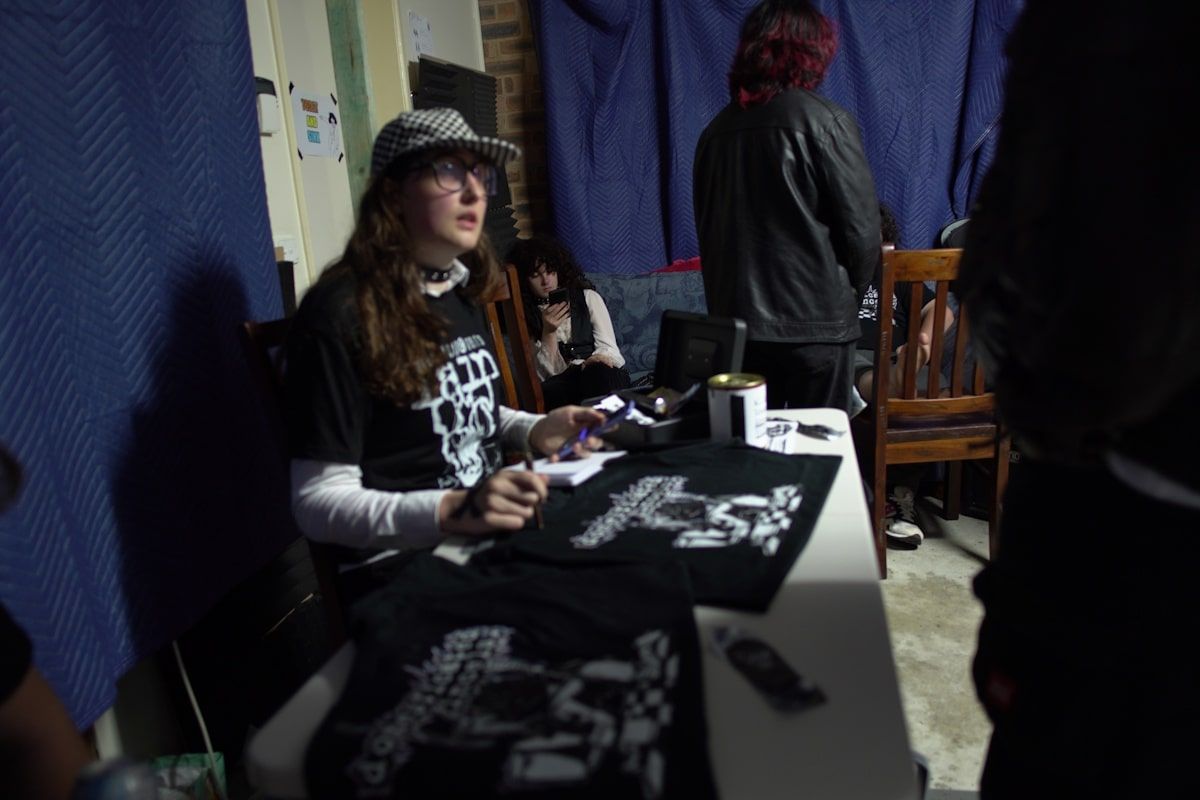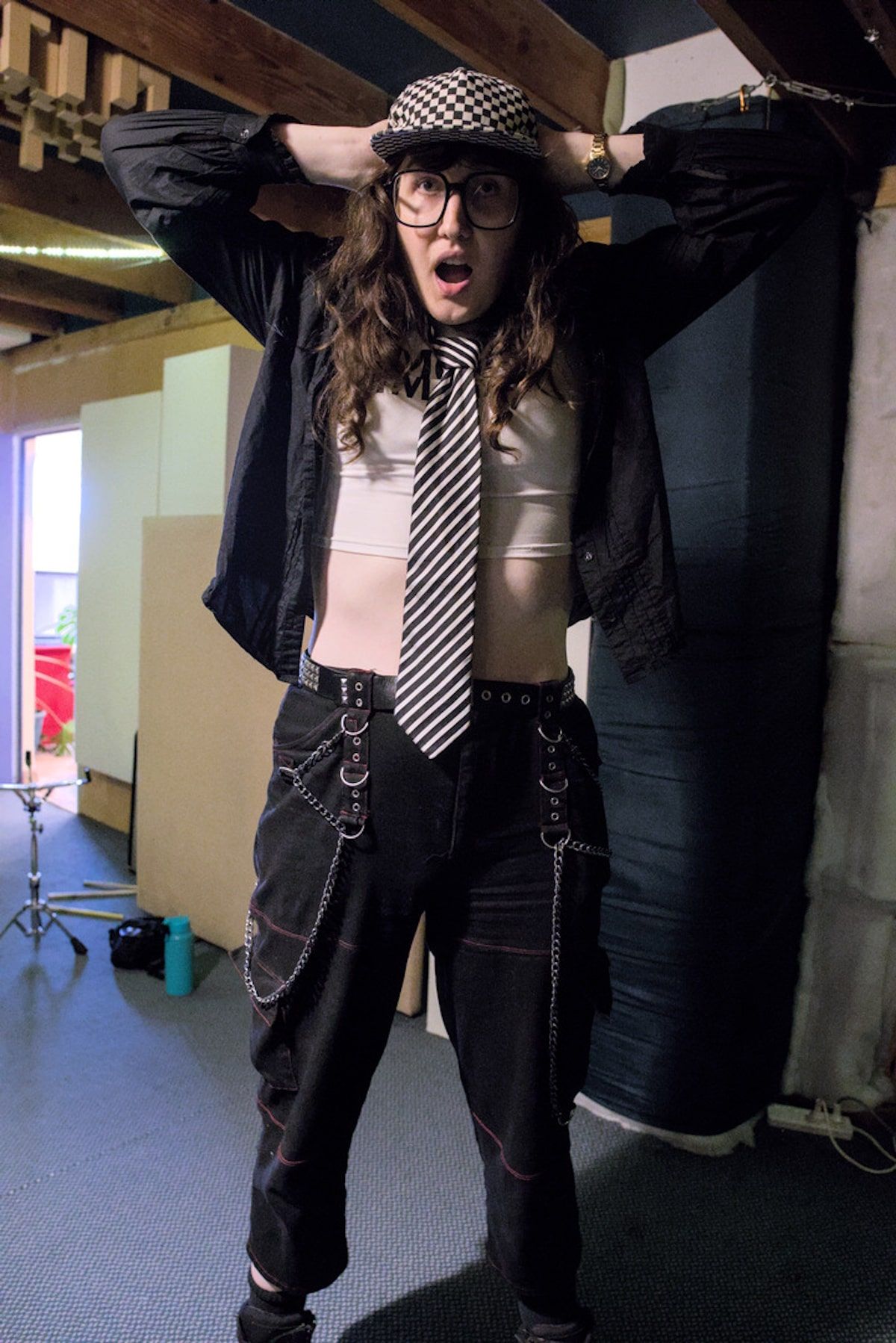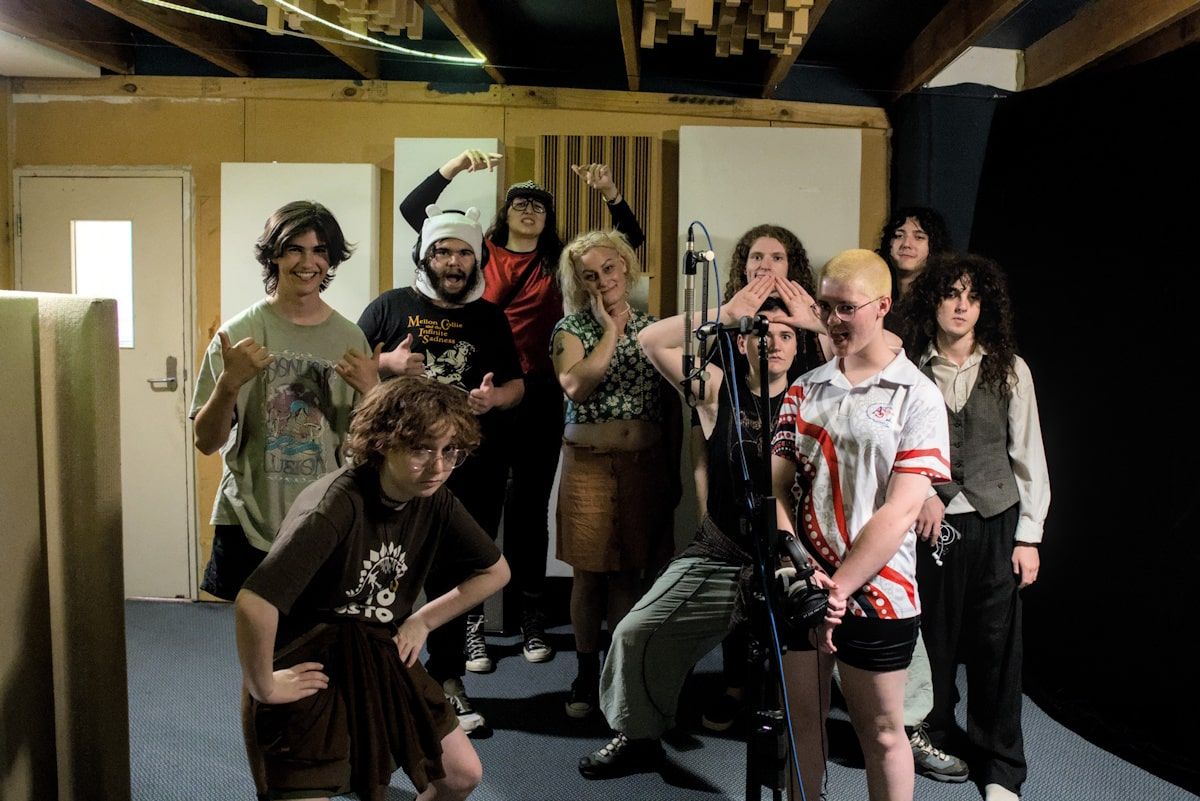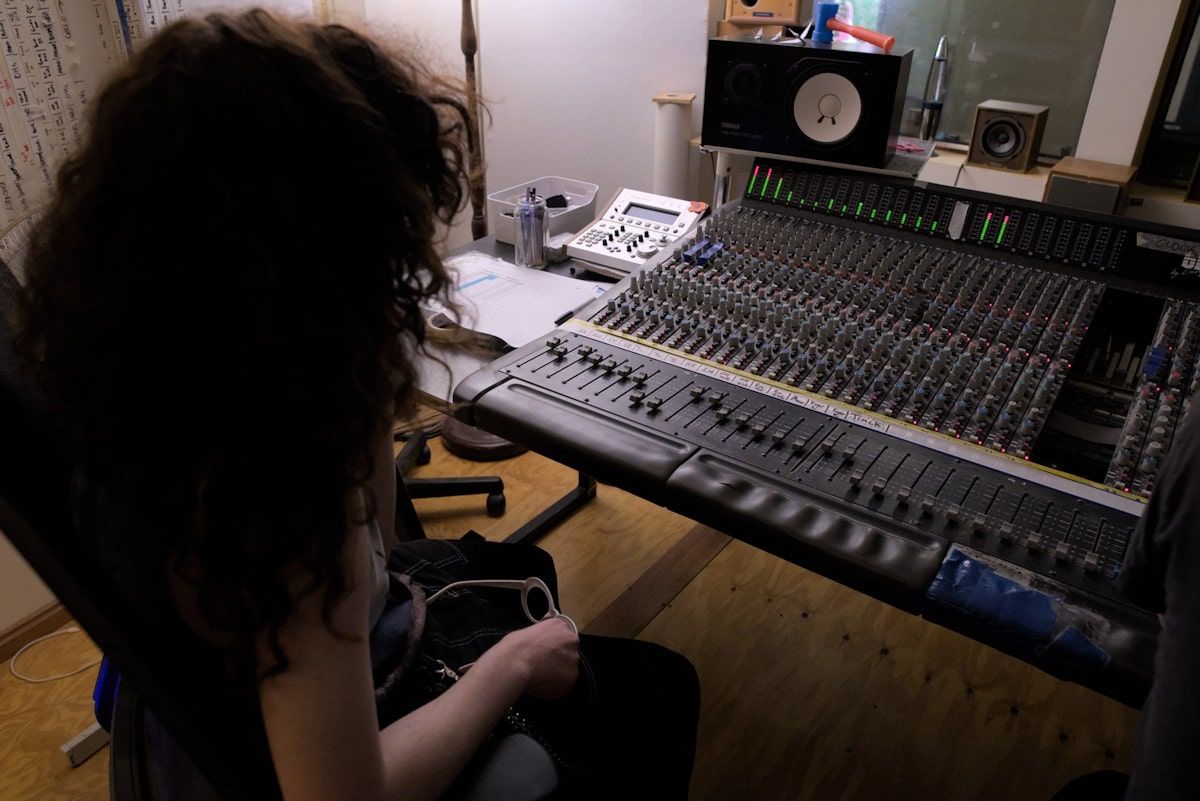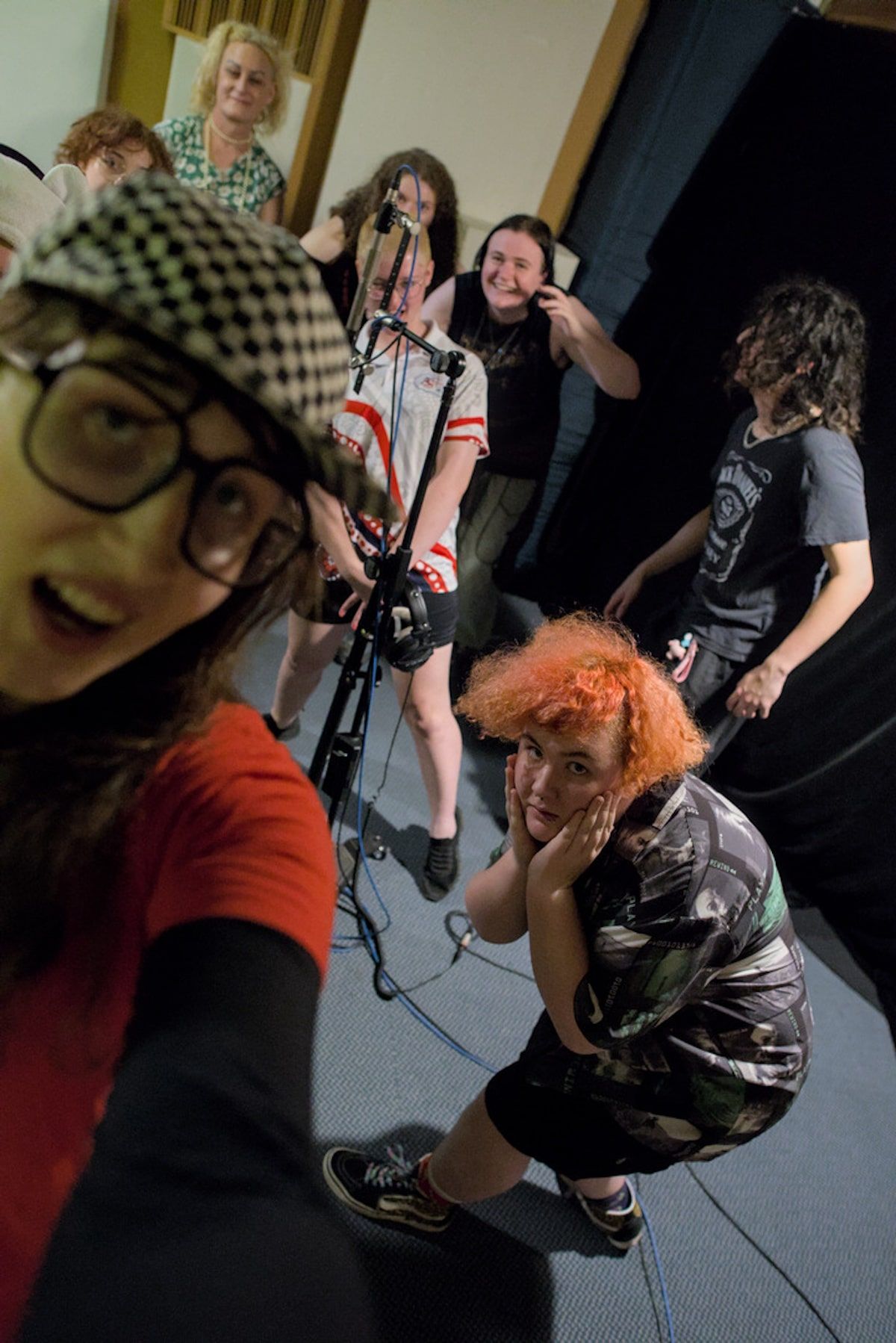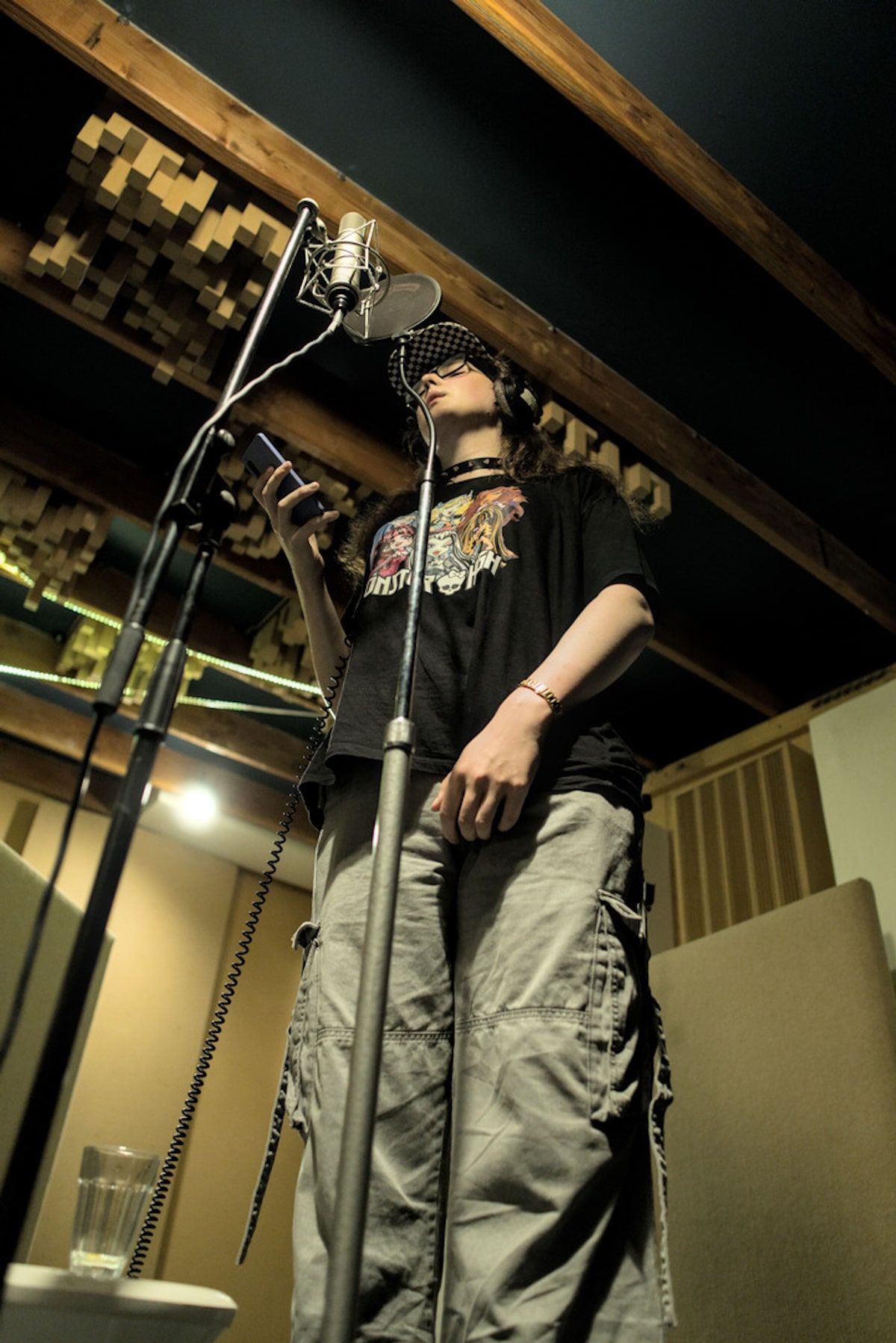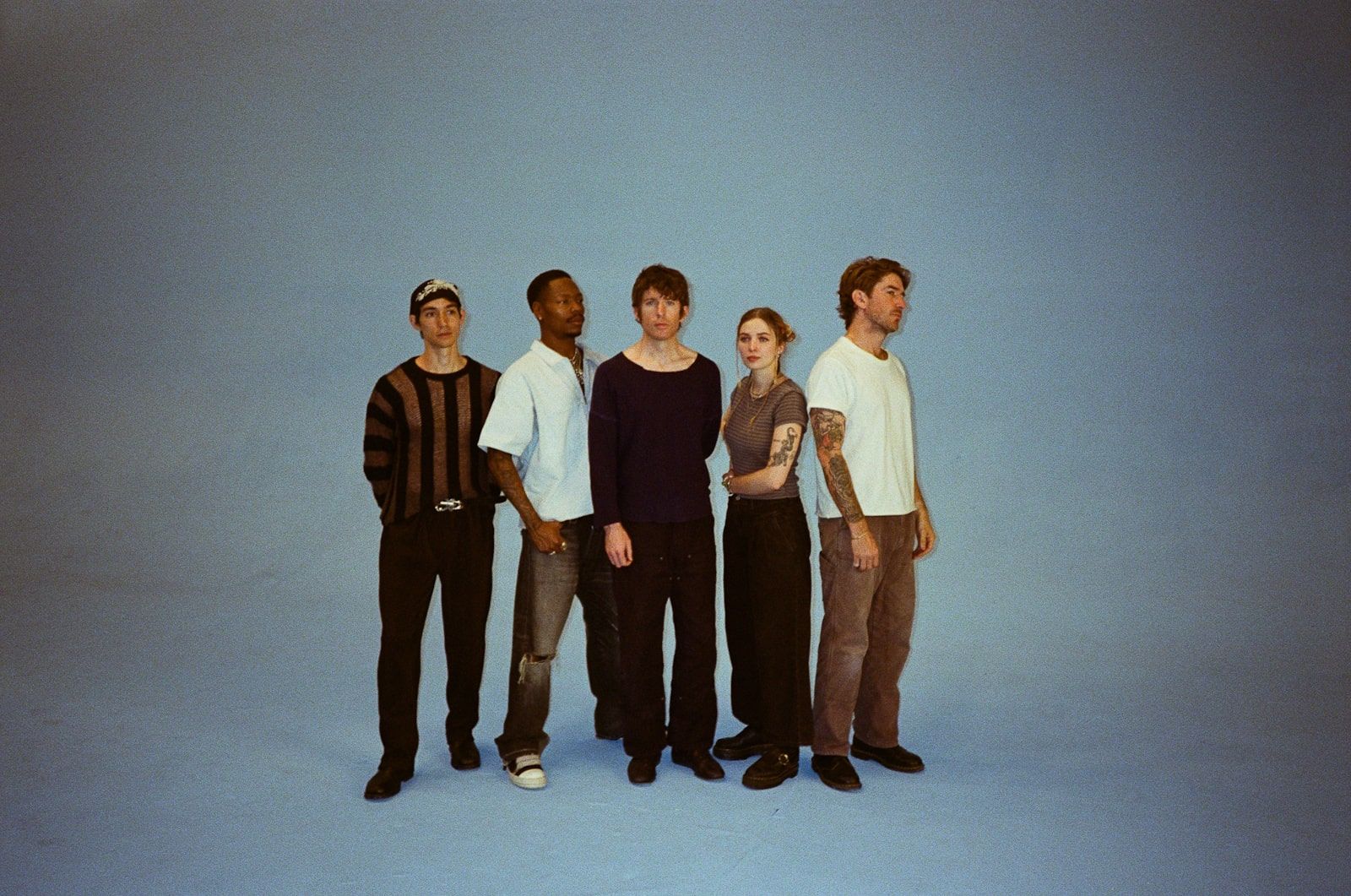Domestic Terror is the debut EP by Canberra-based emo band Domesticated Incels, out April 11. Across six tracks—four songs and two spoken-word interludes—the release picks at themes of shame, neglect, nihilism, and the paradox of being both a victim and participant in societal collapse. The band frames its work as “a carving in a dead tree,” born from the attrition-heavy environment of Canberra’s youth-driven, post-COVID DIY scene.
The EP operates in contradictions: desperate softness set against moments of horrifying self-awareness. The band explains, “We are not doing okay. We are laying scarred and blind. We have been forgotten.” Domestic Terror aims to balance trauma, satire, and sincere introspection with a deliberately polarizing tone. The goal isn’t clarity or redemption—it’s a cry for visibility from a generation that sees itself as expendable.
Visually, the EP leans on discarded internet iconography. Its artwork, described by the band as based on “Perfection Girl,” an obscure 2010s macro meme, reflects their ongoing interest in nostalgia, meta-irony, and what they call “a retrofuturist angle: as if we’re looking back on ourselves, who are looking forward to a future that doesn’t exist.”
The name Domesticated Incels, they clarify, is not a provocation but a thematic lens for unpacking cycles of alienation, unhealthy desire, and societal punishment. “In lesser ways, we are all incels,” they write. “Creatures forced into domestication, and told that all of our problems are our own fault.”
They speak directly to their environment. “Most aggravated guitar music being made in Canberra is being played at DIYs—free, all ages, often drug-free shows, outdoors or held in tunnels, off of generator power.” With no strong commercial infrastructure and a government-heavy workforce, Canberra bleeds its youth to Sydney and Melbourne. For Domesticated Incels, staying put is its own statement. “We live for this scene… The death of so many great local bands is the reason we strived to put out an EP so quickly.”
Several names echo through the local lore. Teen Jesus and the Jean Teasers and Glitoris are among the only Canberra bands to gain wider recognition in recent memory—spanning generational lines from Gen X to millennial. Sonic Reducer is now surfacing within the current wave. The DIY ethos that sustains this scene today borrows heavily from the earlier groundwork laid by now-inactive acts like Hymmnn and Wardens of Sound.
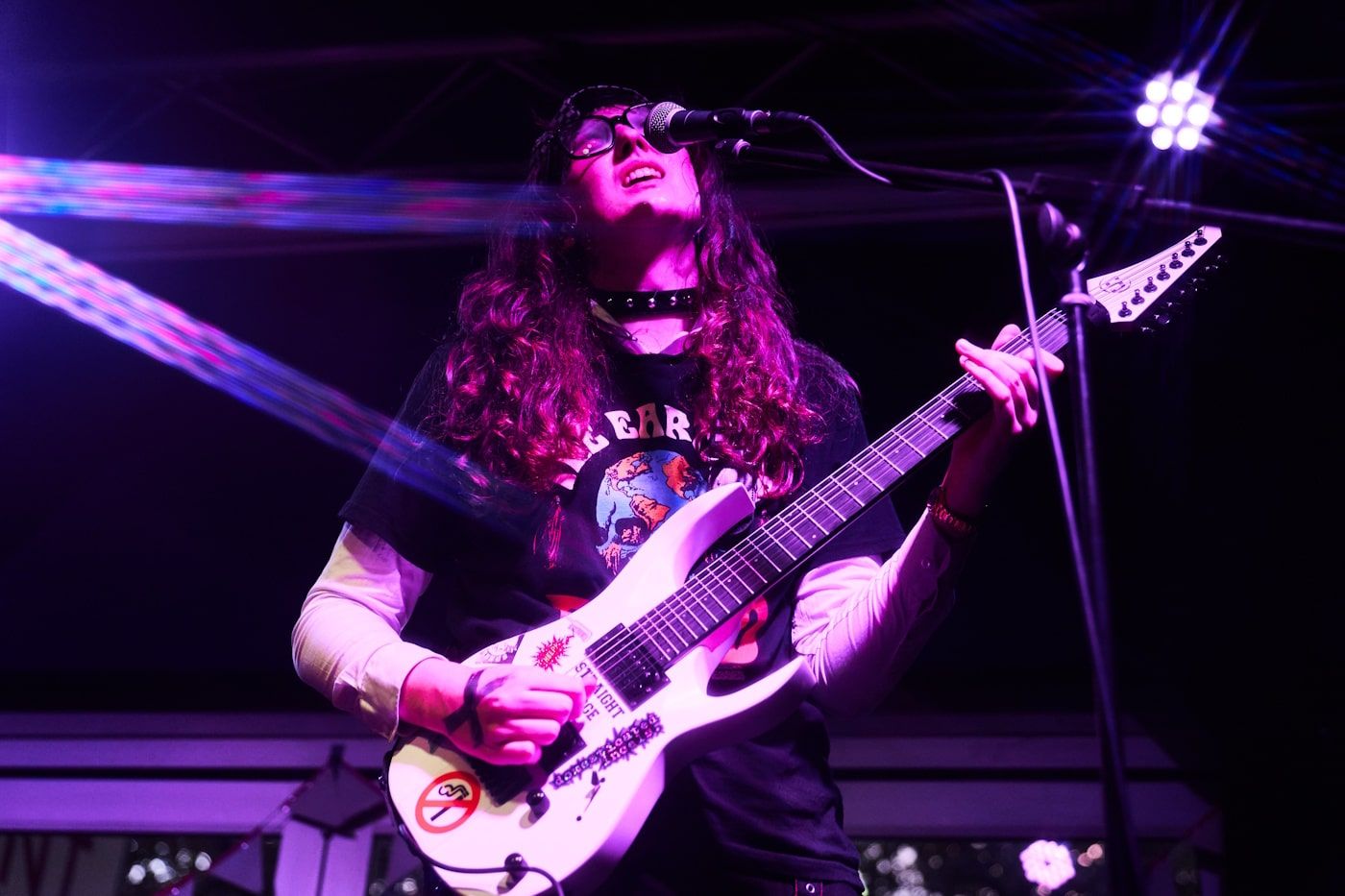
The tracklist leans into this ethos of ambivalence and self-awareness, and the band has provided a complete commentary—available below—that serves as the heart of this article. Across the songs, they satirize performative leftism, unpack sexual narcissism, interrogate the limits of forgiveness, and question whether justice systems built on shame and performance can ever deliver rehabilitation.
The interludes, a schema of unrelenting standards and everything you say is about you, function as fractured narrations, inspired by Flatsound and King Midas Sound, or what they call “Flatsound’s spoken word work, but (more) incel.” They offer a deliberately unreliable voice, blurring the lines between satire and sincerity.
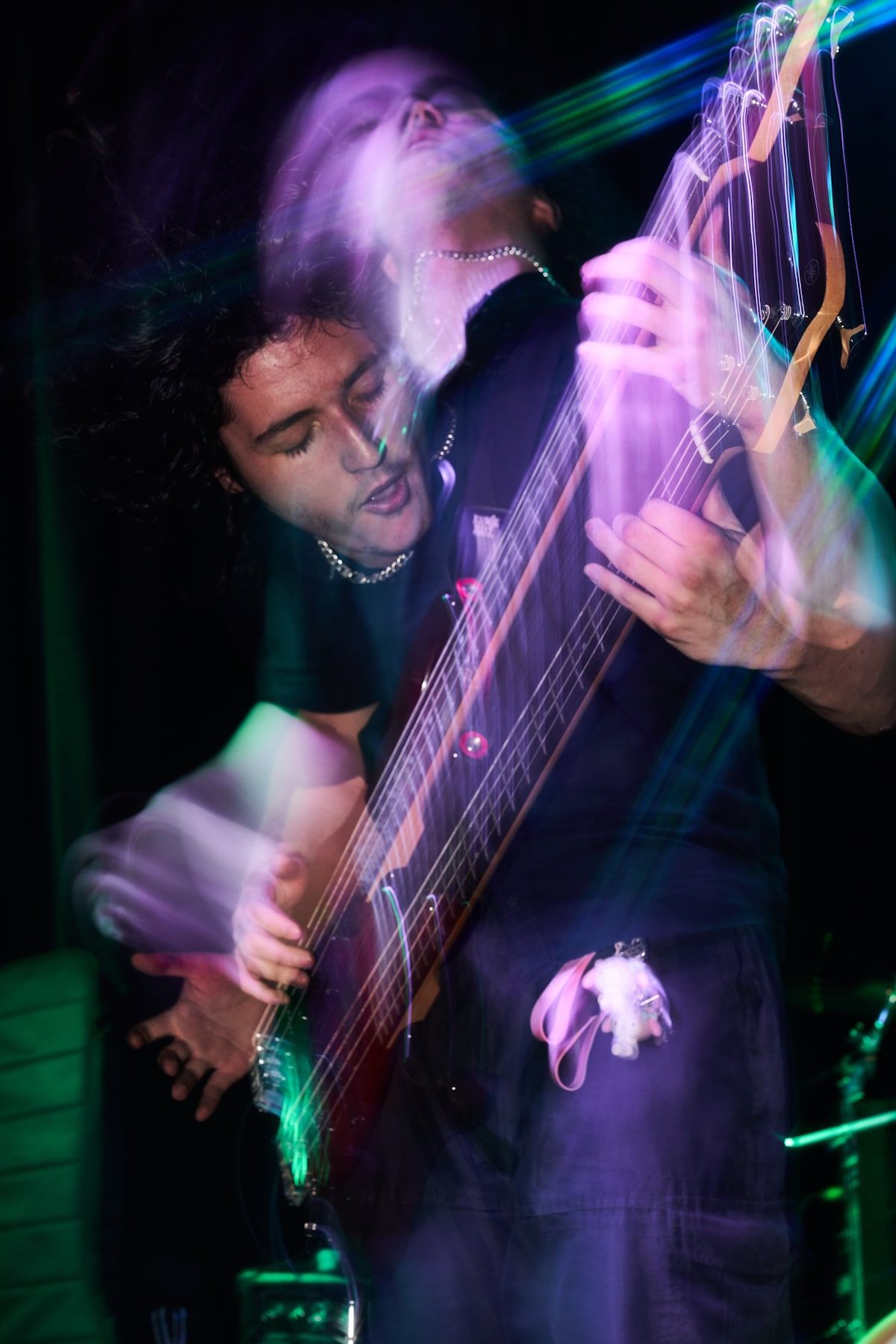
Musically, the band draws from Australian DIY hardcore and emo, filtered through internet-era grotesquerie and a shared love of moshable tempos. Their bassist is influenced by Korn and Primus; the drummer blends Brad Wilk, Joey Jordison, and jazz punk. Their sound emerged from community-driven shows like Uzisakimbo’s “For the Kids” series, and they name-check peers like Sertra, Spouse, Thantu Thikha and Fearetical as essential to their formation.
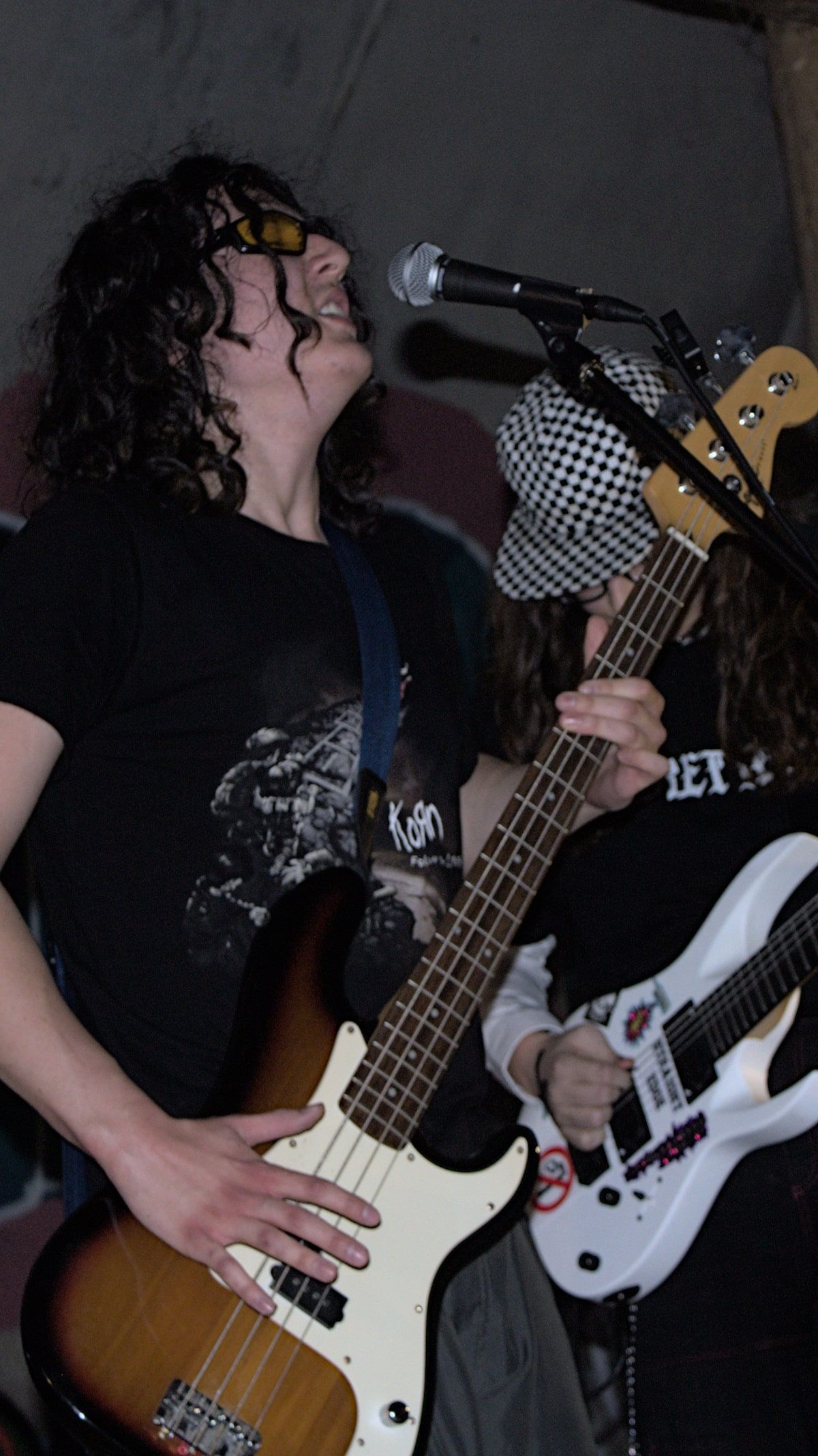
Lyrically, they describe the EP as “darkly compassionate,” with characters that might resemble “the romanticized school-shooter, the avoidable suicide; the imperfect victim.” This exploration continues in upcoming work. “We’ve got songs… that expand on this kind of Jungian shadow work,” they write. “Being written also from the perspective of terrible people in a way that might trick you into thinking they’re actually confessional.”
Below is their full track-by-track commentary for Domestic Terror—a document of self-sabotage, catharsis, and the uneasy politics of attempting to be seen.
Track by track commentary:
1. Sex on TV
I wrote this late June of 2024. At the time we had a different drummer, as well as an electric mandocello player. We were practising at the drummer’s university, in a lecture theatre she was able to book as a researcher there. We would store the drums, PA, and mic+stand in a friend’s tiny dorm room, and hike it down twice a week for practice. You’re not seeing any photos from then – we looked like total dweebs. Even more so than now.
The song hasn’t changed a ton since then – Phoenix reworked the drums when he joined the band after the old drummer left to focus on her PhD, but the bones of the track are more or less the same. I remember I had a lot of confidence issues with singing at the time, and the long extended nasally strained almost-out-of-key yell at the start of the song was a kind of rebuke to that anxiety. Like, yeah I suck at singing – so what? That yell specifically reminded me of how Leor Miller sang in her early stuff with Cipinko; and though Cipinko’s music is all objectively terrible, I really love it. So it made me feel better about myself.
The song is trying to portray a desperate narcissist, flipping their attention between themselves and someone they’re trying to exploit. It’s a bit of a meta-ironic take: satirising creeps that get into music just to pick up chicks. The joke here is that, like, that’s actually why I got into music originally. I picked up guitar at age 14 with the express purpose of impressing girls. Though, that hasn’t worked out – my longest partner (of 8 years) never cared much about my music, and that’s a big part of why we broke up. The quiet part after the first chorus isn’t really about anyone in particular, least of all how I felt about her then or now. But it does channel the unhealthy feelings of absence I felt specifically when me and her briefly broke up ~3 years into our relationship.
The big dumb breakdown at the end was put in as a joke and meant to be replaced. I even had another verse written. Though it was pretty icky – running counter to the almost suave Deftones-like persuasion I’m going for in the other verses. It’s probably best the song stayed the way it is. I don’t think I’ve ever felt not lonely, and the final version of the finale expresses that pretty well.
2. a schema of unrelenting standards
In our live shows, we would always drone out from the end of Sex on TV and Class of NULL before transitioning into the next track. We wanted to preserve that for the EP – so we decided to put in these interludes. They were originally going to be instrumental, but I wanted to use the space to express some ideas we couldn’t get across in just the four tracks we picked for the EP. So I pitched the idea of “what if Flatsound’s spoken word work, but (more) incel.” King Midas Sound’s Solitude is also a big influence.
This piece is really just trying to express the paradox of truth. None of this is real. We’re making it all up. We aren’t really in this to pick up chicks. We aren’t really fighting back these urges to do horrible things. Every line is a lie. Even this one. If we can at least make you think about something, and not just get scared by our words, then you can come to your own conclusions on the topic. Maybe even feel something. Idk.
I’m pretty sure at least one of the lines in this is ripped off from an episode of Star Trek. Some more of this is inspired by writings on evil.com. The line “maybe it’s evil” is a nod to that. I discovered evil.com while hanging with some friends playing a game we often play: “Internet.” The game is simple – you gather around the TV (with a laptop screen-sharing to it) and all yell out things to search or try. Type in random URLs, play old Flash games, go on eBay or AliExpress and look up weird terms… etc etc. I maybe only feel this because I’m straight edge, but playing Internet is some of the most fun I’ve had at a parties I’ve been to.
3. Shame Spiral
We first wrote this in November of 2024 – it’s the newest track on the EP, besides the spoken word pieces I guess. We got a dozen fans into the studio with us on the last day to record the gang vocals on this track and Class of NULL. It was a ton of fun all gathering around a Blumlein pair, yelling at the top of our lungs.
When I get ideas for songs, I write them down in lists. This song managed to suck up a lot of song ideas and fragments that I’d had for a long time that I had struggled to fit into any song. The stereotypical “Bollywood” and “racist Chinese” riffs in the bridge, the topic of supposedly ontological evil people; it was very cathartic to knock a lot of good ideas off of the lists, and into a solid song. The mentions of John Wayne Gacy and Junko Furuta are something I’ve especially been trying to hit for a while… I guess growing up on the internet watching ISIS beheading videos and having unlimited access to gore porn kind of screwed us up. The line “my hate is given power by not keeping it a secret” is based on this conspiracy theory post I saw on 4chan that stuck with me; where a guy was pointing out all these “clues” as evidence to wild conspiracies, like if you fold a dollar bill the right way it admits Bush did 9/11 or whatever… and someone was trying to reason with this – like, why would the lizardman Illuminati expose their operation like this…? The response was that by making parts of it public, it empowers its occult magic. Or some shit, I don’t know.
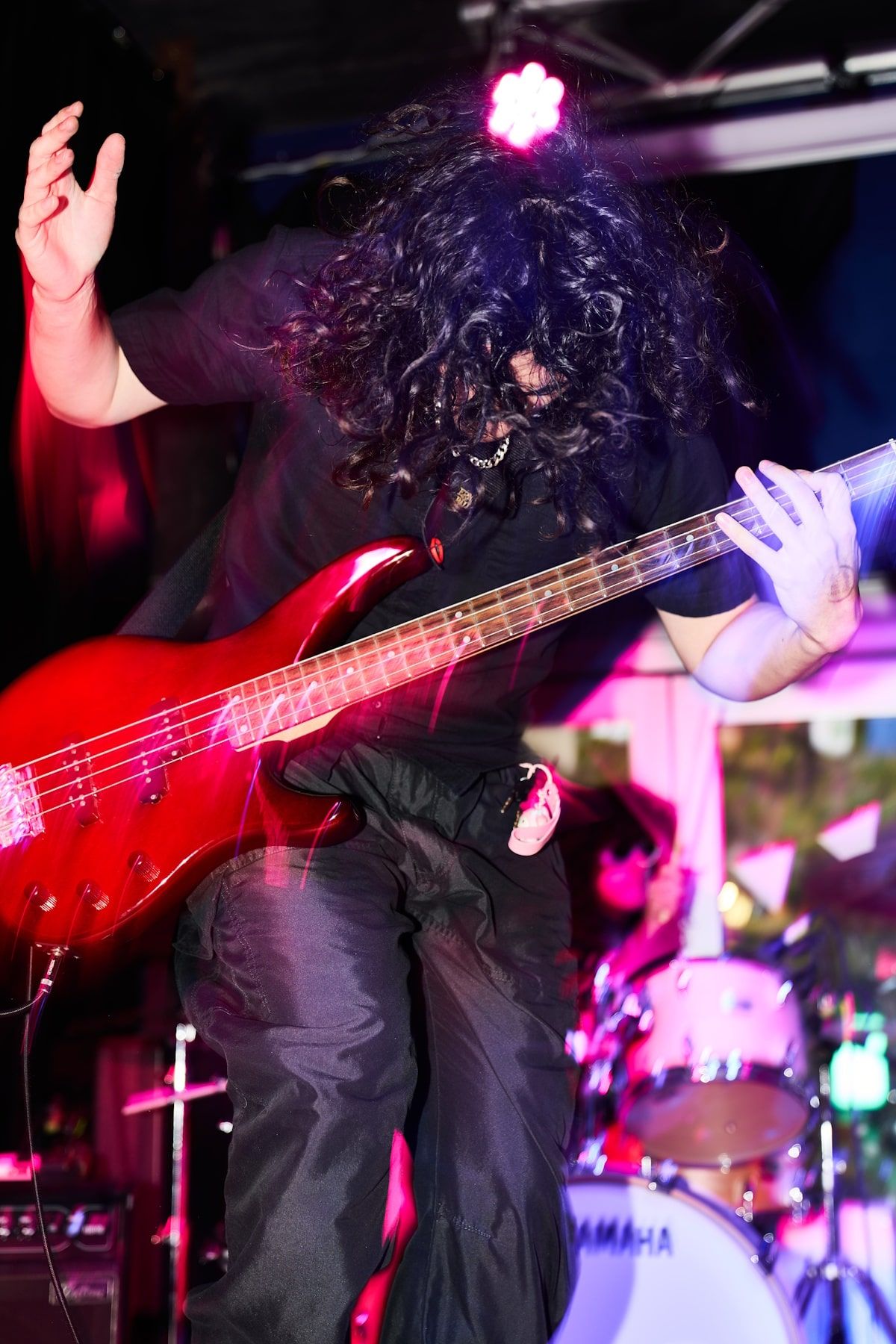
This song is a bit of a jab at the kind of completely nuance-blind people that think these kinds of ontologically evil people, incapable of real improvement, really exist and must be destroyed. I don’t know how universal of an experience this is, maybe I just suck, but I’ve been sometimes treated like this; as an irredeemably bad person that must suffer. Part of this dehumanization is less about them making a value judgement or trying to improve the world, and is more just about them trying to polish their ivory tower. Caring more about the wit and social clout of their words than any true justice or rehabilitation.
This is written from the point of view of one of these terrible people that supposedly exist, as they act out true dark evil intent (as opposed to, like, mental health issues, past trauma, or nonfeasance) – unable to restrain themselves, to the point of desperately wishing someone would stop them from doing the hateful things they must do, that they are ashamed of. In reality, what good does it do to dunk on people acting toxically? Get them help or put them away if you really care, trolling the lolcows and spreading rumors doesn’t help anyone.
We’ve always had the concern that people might take our music at face value and think we really do hold incel-type beliefs/worldviews. That’s kind of really funny; I personally love the idea of some self-righteous jerk discovering us on YouTube or whatever, missing the meta-irony completely, and thinking that we actually think or do the terrible things that we explore in our music – and try to cancel us or something. The lyric “don’t listen if I say that I lie in each lyric” is referenced in the first line of the spoken word piece that Shame Spiral follows. I like the idea of writing stuff like this into our songs, to make it harder for me to beat the allegations. We’ve got songs we hope to put out in future releases that expand on this kind of Jungian shadow work: being written also from the perspective of terrible people in a way that might trick you into thinking they’re actually confessional.
4. Burrow
Alex wrote this originally as an instrumental chiptune type thing, for an instrumental album he was putting together before he met me or Phoenix. He later added lyrics, and brought it into practice for us to jam on. The lyrics were pretty sparse – basically just the bridge and the first verse. I was working on a different song the night before that wasn’t going anywhere, but it hit a lot of the same emotional notes. I cannibalized the lyrics out and strapped them onto Burrow, filling in the chorus and later verses.
I read this great blog post a while ago, about narcissistic parents feeling alienated and abused by their children that had distanced themselves, or cut off contact. (Found it here — I love these cool little views into weird dark pockets of the internet.) This inspired a lot of what I was writing in the parts that I added onto Alex’s. I’ve had to distance myself from friends due to their own troubles with mental health, and it always hurts. This isn’t so much expressed in the song, but I’ve been mentally chewing on this thought about how leftist and queer communities seem to have a phobia of self-improvement and setting healthy personal boundaries. As if looking after yourself is some sigma male dudebro alt-right idea, or that you’re betraying the communist cause by not letting others take advantage of your relatively good mental health. In a way, this is what Burrow means to me.
This song was a total disaster to record, by the way. We ended up doing something like eight takes of the drums for it (as opposed to two or three for the other tracks); I had to re-take my guitar part at the end over 200 times to nail it. (Thankfully we DIY’d the guitar and bass recordings at home, so I had the space to do that.) Alex’s falsetto vocals in the ending had to be re-recorded at home, as we made the mistake of recording them last – right after we had recorded the gang chants for Class of NULL and Shame Spiral… Alex’s voice was fried by that point. Thankfully Chris (Common, the mixing engineer on Domestic Terror) still managed to make them sound great in the end. In future we’ll probably skip the studio for vocals and record everything but the drums at home.
5. everything you say is about you
This one is kind of personal. It ties into the themes mentioned in my response to the “deeper themes” point; of us looking back on ourselves looking forward to a future that doesn’t exist. I wrote it in bed one night while crying and listening to Flatsound. I originally had the idea of recording it as a phone memo, while I was still crying – to capture the emotion as I was writing it. It ended up sounding pretty horrid, and I’m glad we didn’t keep with that. If we had, we wouldn’t have come across the idea (inspired by the voice of SHODAN in System Shock) of recording the lines in a pair, speaking in sync in both a dark/gruff voice and a brighter/clearer voice; producing this disorienting sound in both of the spoken word pieces. I feel this helps set them apart from the other tracks on the EP. They’re meant to sit as a kind of outside narration, beyond the world that the EP occupies.
6. Class of NULL
This was written around December of 2023 – it’s the earliest written track on the EP. At the time I had a different drummer and bassist (different still than the ones in the band when I wrote Sex on TV), and the track has evolved a lot since then.
Like seemingly any song written by my generation, it’s terminally about neglect. Generational theft. We’re fed up that everything is owned by a landlord caste, all of our possessions rented out to us. Every new invention just a more efficient way to manipulate us, keep us addicted, or steal from us. Billions of dollars of research into more addictive social media algorithms, or diffusion image generation models. When we act out, is it any surprise? Is it anything less than self-defence? Can we really be blamed when we try to destroy the very society that raised us?
I feel like this song almost comes across as being about COVID, and the generation that lost out on proper education and socialization. Truthfully, I actually feel like COVID was really a great liberator for a lot of people. Missing a few years of maths/English/science and face-to-face social skills is tragic, but gaining a few years free of authoritarian conformity? A few years stuck online, to reinvent a world and social scene detached from the structures of the physical world? I’m reminded of a line in The Light of Other Days (Stephen Baxter, Arthur C. Clarke. 2000): “These kids are different. The sociologists say it. You can see it. They are growing up used to openness, in the light, and they talk to each other the whole time. Have you heard of Arenas? – gigantic, ongoing discussions transmitted via links, unmoderated, international, sometimes involving thousands. And hardly anybody involved over the age of 25. They’re starting to figure things out for themselves, with hardly any reference to the world we built.”
The song originally started as an effort to translate the Cool Kids of Death song Generacja Nic to English. I wasn’t aware at the time that they already had an English translated version of it out… though it kind of sucks compared to the original Polish version. Comparing Generacja Nic to Class of NULL now, there’s only a couple of superficial things still in common; the track ended up very different in the end. I feel like CKOD’s lyrics could’ve been written any time in the last century. I’ve aimed to root Class of NULL in the present, with mentions of dopamine traps (alluding to internet addiction) and diffusing subroutines (in relation to AI image generation models).
We made some changes to the track at practically the last minute – rewriting vocal lines just a day before we hit the studio. You can hear the earlier version in an Instagram reel we posted of us playing it live; it lacked any of the gang chants in the verse present in the EP version. It also had a very janky line where I split the word “cynicism” across a bar and stressed it super weirdly, too… yuck. It was hectic incorporating the changes so late and my bandmates kind of hated me for it at the time, but we definitely feel it was worth it in the end.
Domesticated Incels will play their first-ever Sydney show at Lazy Thinking in Dulwich Hill on April 15, marking the launch of the EP.
Just eight months into their existence, the Ngunnawal/Canberra-based band brings their bleak, emotionally volatile live set to Eora/Sydney, supported by a stacked lineup featuring the towering presence of Second Idol, the fierce and unapologetic Final Girls, and the genre-warping chaos of Angel Grindr.
Hosted by Lazy Thinking and powered by Humanitix, with all booking profits going to charity.
View this post on Instagram



